On the eve of the 31st anniversary of Independence of the Republic of Uzbekistan, the editorial of the “Economic Review” Journal has prepared an overview of reforms in the field of economic development and liberalization over the past 6 years.
Since 2016, a new stage of economic reforms has begun in Uzbekistan. The key ones are:
- unification of exchange rates, liberalization of the foreign exchange market
- elimination of administrative barriers to cross-border movement of goods and reduction of customs duties
- reform of the banking sector and monetary circulation
- tax reform
- reduction of administrative costs of doing business
- reform of all areas of the agricultural sector
The editorial has prepared abstracts presenting 12 main directions of development and liberalization of the economy of Uzbekistan in 2016-2022.
The emphasis is made on foreign economic activity, the banking sector, the tax system, legal regulation of business, the agricultural sector. Briefly about these changes and the results of economic reforms over the past 6 years in our material.
- The foreign exchange market has been liberalized, including the cancellation of the procedure for the mandatory sale of receipts in foreign currency by legal entities, conditions have been created for citizens to freely convert national and foreign currency.
- Types of taxes have been reduced from 13 to 9, and types of tax audits from 13 to 3. The value added tax rate has also been reduced from 20% to 15%, and the social tax rate has been reduced from 25% to 12%.
- 114 types of licenses and permits required in the business sector have been canceled, and instead of 33 types of licenses and permits, a notification procedure has been introduced.
The rates of state duty paid for business registration have been reduced, as a result, more than 35 billion sums have been left at the disposal of entrepreneurs.
-
Import customs duties for 3.5 thousand types of goods necessary for the domestic market have been abolished as well as excise taxes on 1.1 thousand types of goods and import customs duties for more than 3,000 types of goods have been sharply reduced. (2021)
-
A mechanism for compensating up to 50% of export transport costs of exporting enterprises has been introduced.
In general, as a result of the conditions created to support exports, the range of exports expanded to 74 new types of products and the geography to more than 72 countries, the volume of exports increased from $12.1 billion in 2016 to $16.6 billion in 2021.
-
Over the past 6 years, almost 250 trillion sums of investments have been attracted to fixed assets (in 1991-2016, namely for the first 25 years, this figure was equal to only 51 trillion sums).
As a result of the improvement of the investment environment in our Republic, the volume of foreign direct investment increased 4 times compared to 2016 and their share in the gross domestic product reached 4%.
According to the State Statistics Committee, over the past 6 years, about 545 trillion sums of investments have been attracted to fixed assets (in total for 2000-2015, namely for the first 15 years, this figure amounted to 96 trillion sums).
- Additionally, 19 free economic zones were created (in 2016 there were only 3) and more than 400 small industrial zones, in which more than 1,000 projects worth 10 trillion sums were launched with the creation of 100 thousand new jobs.
-
All areas of the agricultural industry were reformed, a value chain was created in the sector, work of agrocluster and cooperation systems was established. Most importantly, market relations have been introduced into this area. As a result:
- the complete processing of cotton fiber produced in the country has been achieved (in 2016, only 40% of the fiber was processed);
- exports of fruit and vegetable products increased from 34 to 119 species, and the geography of exports expanded from 43 to 92 countries of the world;
- more than 363 thousand hectares of land have been put back into circulation, water-saving irrigation technologies have been introduced on about 350 thousand hectares.
-
Starting from 2017, special programs have been introduced to support family entrepreneurship, within the framework of which concessional loans totaling more than 29 trillion sums have been allocated to date.
- In general, as a result of the reforms carried out in the economic sphere over the past 6 years:
- more than 1 million additional business entities and almost 2 million new permanent jobs have been created;
- the average monthly salary in the republic increased by 2.48 times (from 1,293,000 sums in 2016 to 3,214,000 million sums).
-
Since 2021, a completely new system of directing part of the state budget to solve the most pressing problems based on proposals from the population has been introduced – the "Initiative Budget" system.
Within its framework, 5% of the expenditures of district and city budgets (1.5 trillion sums per year on average in the Republic – 2022) is directed to events formed on the basis of public opinion through the Open Budget portal.
1.1 trillion sums were allocated to finance 2,215 projects that received the largest number of votes.
-
Since 2020, a new procedure for providing housing to the population through mortgage loans based on market principles has been introduced as well as a system for paying subsidies in the amount of 32 million sums for the initial mortgage loan payment to low-income families and the procedure for compensating interest rates over 10%.
Within the framework of the mortgage program, more than 475 billion sums were paid for the purchase of housing for 17.2 thousand low-income families, 179 billion sums were allocated to cover interest costs on mortgage loans.
In general, over the past 6 years, 237 thousand new houses have been built in rural and urban areas in order to improve the living conditions of the population (this figure is 3.4 times higher than in 2009-2016).
Editorial of the “Economic Review” Journal

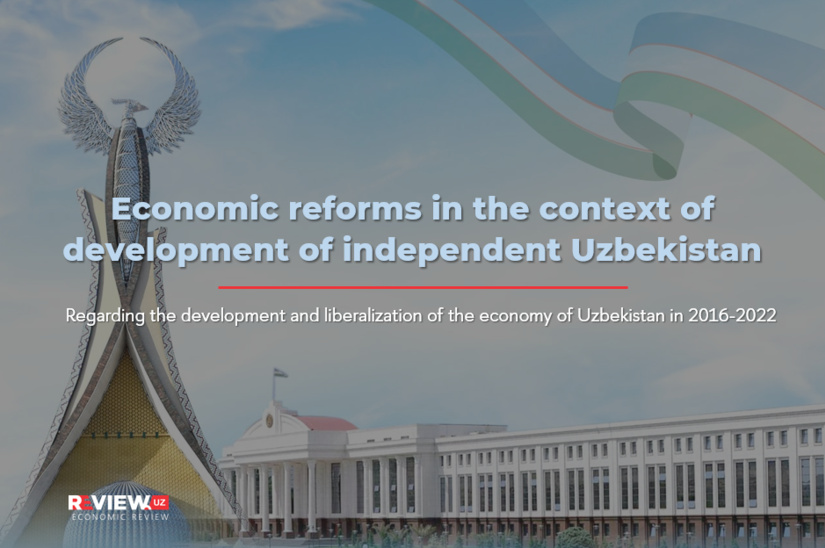
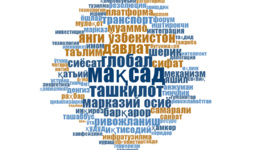
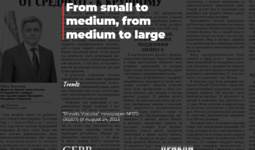
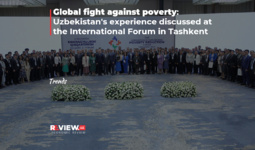
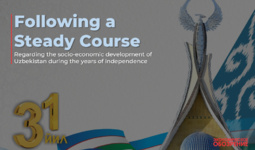
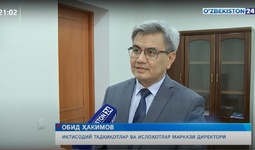














leave a comment